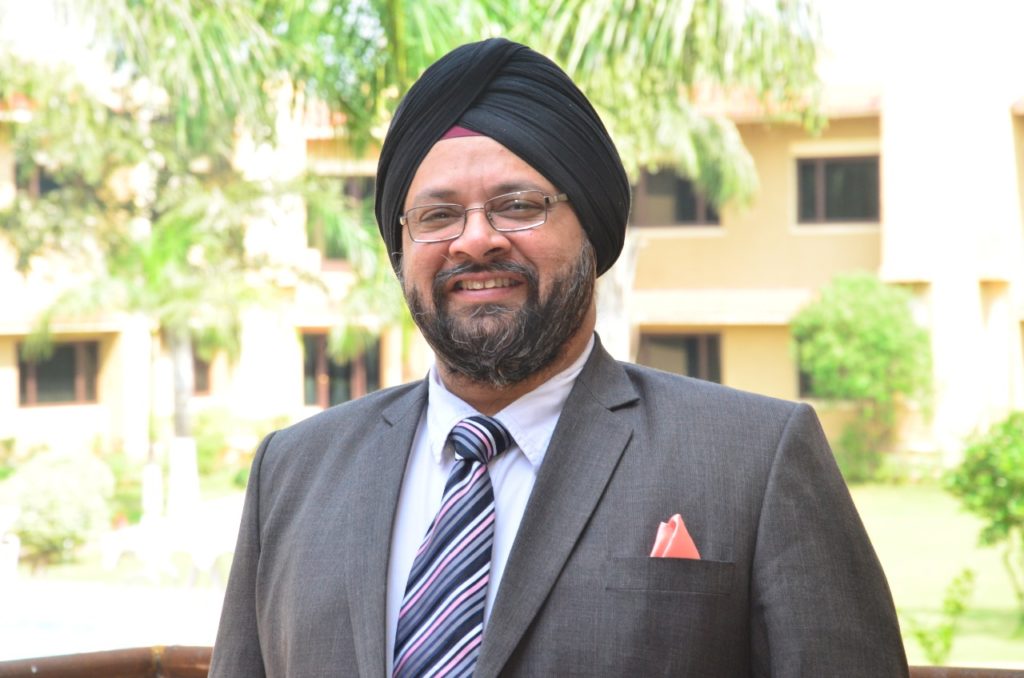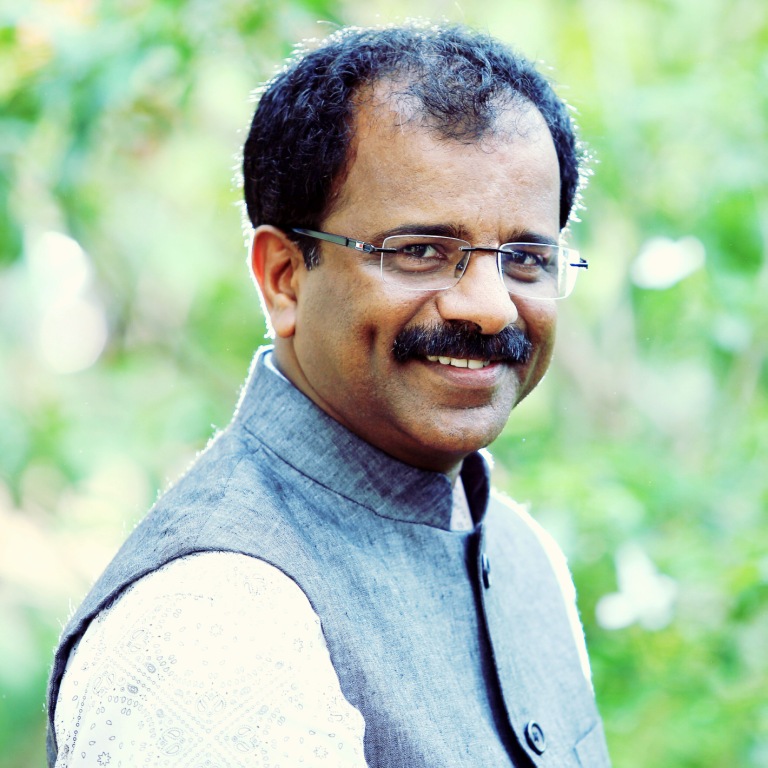Pre-Budget Reactions By Industry Experts
Nandivardhan Jain CEO & Founder, Noesis Capital Advisors One of the biggest hurdles to growth in the hospitality sector is the cost of capital and a relatively short duration of debt tenure. As this is a high

Nandivardhan Jain
CEO & Founder, Noesis Capital Advisors
One of the biggest hurdles to growth in the hospitality sector is the cost of capital and a relatively short duration of debt tenure. As this is a high Capex asset class, it has a longer gestation period similar to infrastructure projects like railway, road, metro and aviation. Infrastructure status to the hospitality industry is a long-standing demand of the industry. We hope the finance minister will extend this status to the hospitality industry in this union budget.
The hotel room inventory in India is significantly lower than in other peer nations. With the Prime Minister charting the path for India to be a developed country by 2047 it has a comparatively low room to people ratio, i.e. We have only 0.7 room spaces per 1000 people whereas it is 10 in the United Kingdom and 20 in the United States. As the income levels are rising, the growth in our country revolves around its consumption story. The hospitality industry is one of the major contributors, hence it is imperative to increase the room supply, infrastructure status is the only long-term solution.


Sanjay Wadhawan
CEO & Founder- Earthaa Escapes
“The past couple of years is proof that the hospitality sector is currently unorganized due to the effects of the pandemic. It has significantly revived but there are still a few gaps that are to be bridged & these will be pushed if the government supports.
As compared to mass tourism, the concept of homestay promotes soft tourism with low capital cost. This sector is growing at an exceptionally fast pace because of the culture of immersive or experiential travel. Apart from that, they’re mostly located outside the normal tourist beat. Hence, it generates employment for the locals and they get good exposure to showcase their culture, food, etc, taking away the pressure from main tourist towns. However, it is still in an infant state in India. The country has seen a rise in the luxury segment & hospitality is one of the key areas in that observation. With the growing trend of homestays, the government should come up with measures to make it more organized as a sector as this has immense potential. We can safely say that Homestays have contributed extensively to the hospitality sector’s numbers and growth.”
Dr. Chef Balendra Singh
Director Institute of Bakery & Culinary Arts
The hospitality sector was one of the worst and last recovering sectors post-pandemic. It faced many lows in the last two years. Tourists are starting to travel again, but this sector will need more time and support from the government. These two years pushed back the hospitality sector for 30 years. We expect to get more government support in FY 2023-24, lowering the high goods and services text (GST) rate on hotel rates, as last year the hospitality sector got limited support from the government. We can expect some more steps taken by the government to increase tourism in India in 2023-24.


Sanjay Sharma
Founder & CEO, Blusalz
- In the last 2 years the travel industry has suffered greatly and has been washed out to a large extent. The travel industry needs to bounce back and cover the significant deficits created through long term support that is required to resurface for the tourism industry which is traditionally a comparatively lower return and high investment industry. Some of the steps that can be taken include
- Better loan terms to avoid any sort of loan defaults/ NPA’s and also granting RBI Infrastructure status to SME level tourism investments with investment value of 10 to 50 crores
- Goods and Services tax (GST) currently put-on hotel rooms is quite high and complex, stimulating demand by reducing GST and looking at the uniform GST across tariff levels. Additionally, reducing GST for hotel restaurants and making it the same as stand-alone restaurants
- For the ease of business, a provision for online single window clearance for all hotels and home-stay licenses Subsidy for power tariffs to be similar to the manufacturing industry
Nikhil Kapur
Co – Founder & Director, Atmantan
1) Incentivise individuals who are imbibing preventive health care & natural healing into their daily lives. These individuals who are in good health by and large don’t add to the already stressed medical infrastructure of the country. hence when these individuals travel to NABH accredited wellness centres or subscribe to online health plans, they should be rewarded with lower insurance premiums, LTA benefits etc.
2) The international travel sentiment remains poor for the next 9-12 months. This is moreover due to the Geo political stress in the west. Hence, the foreign income hasn’t come back to pre covid levels and hence there is an urgent requirement for the Government of India to extend all the EPCG licenses for another 5 years to help us tide over the situation.


Arvind Srivastava
Co founder, Kaudia Estate
As travel and bookings have resumed over the last two years, the hospitality industry has gradually bounced back. In order to regain stability, the industry has been hoping for continuous government support.
The hotel industry, however, is highly miffed by the high Goods and Services Tax (GST) levied on hotel rooms as it has received little government support during these difficult times.
It is expected that a positive Budget for 2023-2024 will further boost growth momentum seen by the industry over the last couple of months following the pandemic lull.
I very strongly believe there are several aspects which can be expected in the upcoming budget session to support the entire sector holistically ‘Travel Tourism & Hospitality’, which will help India to become the largest hub for tourism worldwide, by ensuring the sector survives, thrives and is economically supported. As a result, the central and state governments must work closely to make this sector more structured by including it in the concurrent list to get Industry Status.
A One India One Tourism approach inclusive of one tax structure is needed to revive this struggling sector. Important aspects include E visa fees waiver for all tourist visas for 2023-2024 to support inbound revival Export status for tourism export earnings to support inbound revival. Increasing expenditures for the tourism ministry to enable an intensive global outreach to support the revival of inbound tourism.”
Jai Sreedhar
The Joint Managing Director and CEO of Rosetta – Sakleshpur
“Luxury hotels, as a segment, are known for creating jobs and helping with foreign exchange. The 18% GST slab discourages promotion of tourism and is not a sustainable option due to high overhead costs. We are hoping that the government recognises our industry’s contribution to GDP and helps us with a lower tax slab.”


Sandeep Singh
Director Of Rubystone
The recommendations we have made to the Hon. FM for the upcoming Union Budget includes; giving the hospitality industry infrastructure status and classifying hospitality under the RBI Infrastructure by lending norm criteria for access to long-term funds to improve the supply of high-quality accommodations and, as a result, stimulate greater domestic and international travel demand. Currently, hotels built with an investment of INR 200 Cr or more have been accorded infrastructure status. To boost the budget category in hotels, this criterion needs to be lowered to INR 10 Cr per hotel. As a result, hotels will be able to obtain term loans with cheaper interest rates and longer repayment terms. In addition, they urged that the hotel sector receive perks and industrial recognition The country should designate the hotel industry as an industry, and a fund should be established to cover any fictitious losses. Many State Governments have given hotels industrial status; nevertheless, the rewards and advantages that come with being in industry have not been granted to the sector. A higher inflow of both domestic and international tourists will increase demand and, in turn, further boost confidence in Capex spending in the tourism industry, contributing to structural employment growth. The lower cost of operations, spread over a longer payback period, will reduce the cost of supply, thereby increasing demand. To pass effective legislation to turn tourism into a national priority, we have also asked that it be added to the concurrent list of the Indian Constitution. All States will be encouraged to harmonize their regulations if the Center declares tourism and hospitality as an industry and places them on the concurrent list. It will provide improved cooperation between the State and the Center for funding distribution between projects and programs, implementation geared towards the all-round development of the nation’s tourist industry. High-quality brownfield Capex and capacity development will greatly benefit from the extension of investment-linked benefits under Section 35 AD to ongoing hotel and resort capital expenditures, which will speed up investment and employment in the industry. Only new 2-star hotels and above-category hotels are eligible for this bonus under Section 35 AD.
Aji Nair
Chief Advisor and Consultant at Mirah Hospitality
“After the two yearlong Pandemic and post-pandemic hurdles, the hospitality industry is gradually coming back to its pre-COVID sales and performance. However, most of the restaurants in this segment are still not financially balanced and are still trying to pay the liabilities accumulated during the Covid and post-Covid period. As we all know this industry was neither prioritized during any pandemic surveillant assistance by the government nor considered in any of the strategic policies for COVID recoveries during and post-pandemic by the Government. There have been several pleads and cries from various organizations supporting the industry to the Central and State Governments. However, for reasons not known, the support was very limited and that made many of the restaurateurs shut down their operations or survive with huge liabilities. Hospitality is one of the country’s most important industries, and millions of families survive through this industry. It should get its due importance and priorities by the Government in its fiscal, monetary, and administrative policies.
As far as financial policies are concerned, we have been requesting to get us the Input Tax Credit since the time the GST was introduced in the country. More than 95% of Indian restaurants are operating from Leased or rented premises. Right away from the construction period and throughout operations, we have been paying almost 18% of GST on Rentals and other purchases. This ranges from 18% to 28% for various purchases and activities. While all other industries are enjoying the benefits of ITC, only the hospitality industry is kept excluded from this facility. So, we do expect the Input Tax credit facilities from Construction time throughout operations to be allowed to the industry or else, the GST for our purchases for Projects and Rent should be brought down to the 5% category. This will help us recover at least a minor part of the losses incurred by us during the pandemic, over the next few years. Reduced GST on the construction of restaurants or benefits of ITC, will also invite more investment in this segment which will contribute significantly to the Indian economy and will also help build more employment opportunities in the country.
As far as Human Welfare is concerned, currently, there are no special packages or welfare funds or pension plans for the employees in this industry. The hospitality industry is totally into people service and like any other Government employees, they are also serving the people and contributing to the overall service industry. After a lifelong service in the industry, below 5% of the overall employees have some savings for the rest of their life. The welfare of the remaining 95% of the employees is not guaranteed in any manner. While in work also, other than very limited medical facilities like ESI and self-contributed PF, there are no benefits given to the employees in our industry. Government should come out with some innovative welfare plans funded by the central and state Government for the employees in this segment in such a manner which will help them during their employment and be a support during their retirement life.
Finally, getting approvals and Licenses for starting and operating restaurants in many states and cities is very complicated. We are forced to knock on many doors and be behind the authorities for approvals. There should be a Single Window system for the Licenses and required approvals.

 English
English French
French German
German Italian
Italian




